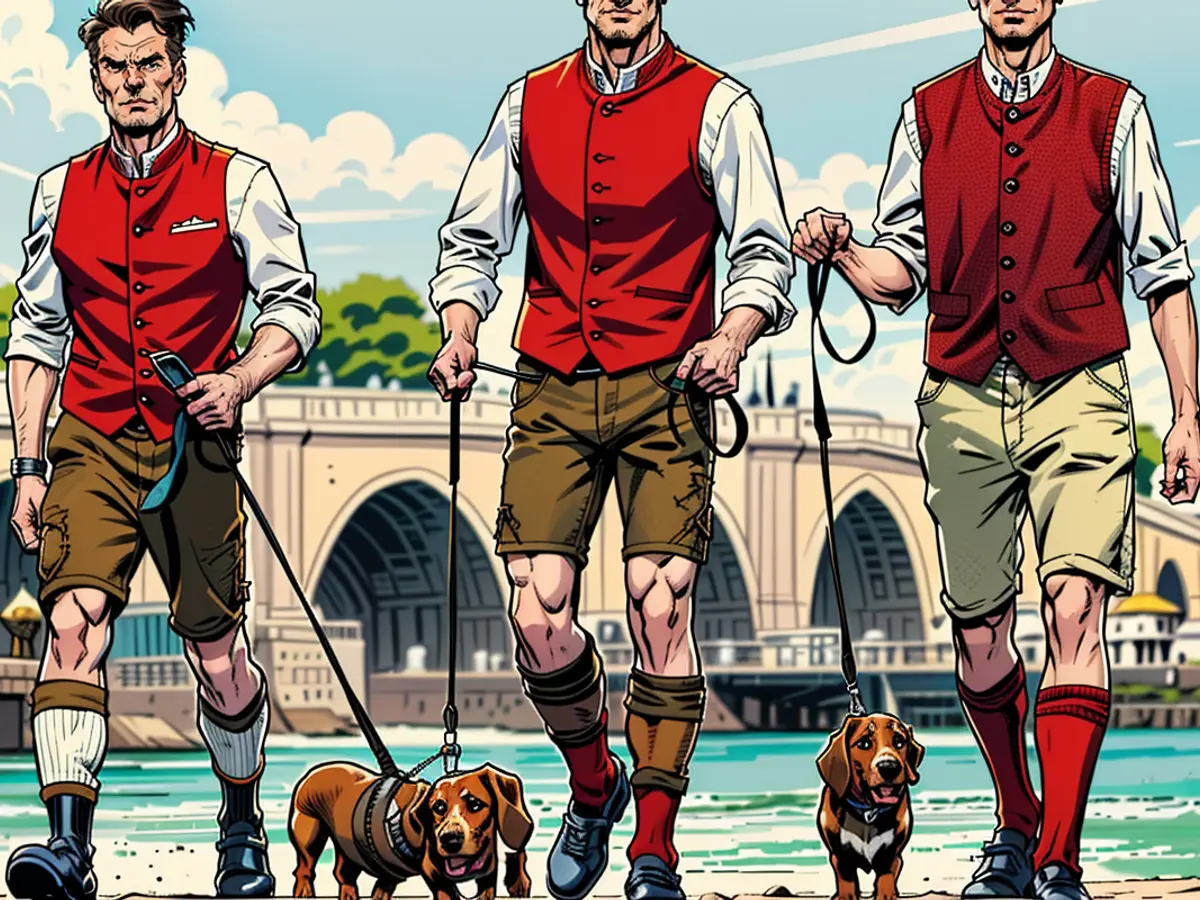Hundreds of four-legged animals await - Dachshund parade for joy and dachshund breeding
The event is allowed to give a loud "Wuff-wuff" concert: The organizers of the Regensburg Dachshund Museum want to draw attention to the cultural significance of the dachshund in Bavaria and Germany with a large dachshund parade. Over 500 animals have already registered for the event on September 22nd, according to the organizers. "We are approaching the 600 mark," says Seppi Küblbeck, who founded the Dachshund Museum together with Oliver Storz.
The great interest in the parade can be explained by Küblbeck and Storz above all with the latest debate on dachshund breeding. Many dachshund enthusiasts are concerned that dachshund breeding could be banned. The background is a draft novel of the Animal Protection Law, which was submitted to the Bundesrat at the beginning of July. In the next step, the legislative draft is expected to go before the Bundestag in the fall.
The goal of the Federal Government in this matter is, for example, that certain unfavorable traits for the animals - such as short legs or a long body - may not be passed on through breeding. Animal welfare activists welcome the planned reform by Federal Agriculture Minister Cem Özdemir (Greens), but they fear that the breeding of healthy animals could be severely restricted.
The dachshund is a symbol of German tradition, says Küblbeck. That's why the Dachshund Museum wants to achieve with the parade that dachshund breeding is included in the intangible cultural heritage of UNESCO. The preservation of dachshund breeding here could also prevent the import of more and more dogs from abroad in the future, which may not meet German breeding standards, says Küblbeck.
Breeder: Importing pups problematic
Doris Vetsch from the German Dachshund Club also finds this point important: "One stone is placed in the way of the good breeders and the door is opened for the others," she says about the legislative draft. The breeding regulations are already strict and do not allow the breeding of animals with crooked or short legs. The new law is formulated in such a way that it allows for a broad interpretation. It would be better if the new regulations were clearly defined, she finds.
Vetsch, who herself breeds dachshunds, says that potential buyers are asking much more carefully about the health of the animals today. In this regard, awareness is certainly there. However, some imports from abroad are problematic.
Interested parties from Germany and around the world
The interest in the dachshund parade is certainly enormous, says Küblbeck. Among the registrations are dachshund owners from 14 federal states and ten nations, including Switzerland, Serbia, France, and Latvia. If everything goes well, the dachshund march on September 22nd could enter the Guinness Book of Records, say the organizers.
Regensburg's Mayor Gertrud Maltz-Schwarzfischer (SPD) has taken on the patronage for the parade. She describes the Dachshund Museum as a unique attraction in the city. "Unique, quirky, and scientifically sound."
Küblbeck and Storz founded the Dachshund Museum in Passau in 2018. They moved the location to Regensburg in 2023 and have since hired Moritz Hickl as a business manager and have a team of 14 people. According to the statements, around 30,000 visitors come annually from all over the world.
- The Federal Government in Germany has expressed concerns about certain traits in dachshund breeding, such as short legs or a long body, which they aim to prevent being passed on.
- The Regensburg Dachshund Museum, a symbol of Bavarian and German culture, is organizing a large dachshund parade to showcase the animals' significance and potentially include them in UNESCO's intangible cultural heritage.
- The parade has attracted a lot of interest, with over 500 dachshunds registered and participants from various German states and 10 foreign countries, including Switzerland, Serbia, France, and Latvia.
- Doris Vetsch, from the German Dachshund Club, supports the museum's goal and argues that the new legislation should be clearly defined, as it allows for a broad interpretation that could negatively impact good breeders.
- The event in Regensburg could potentially break a world record, according to the organizers, as they aim to set the number of participating four-legged animals in a parade.
- Germany's Federal Parliament is currently considering a draft novel of the Animal Protection Law, which could significantly impact dachshund breeding if passed.
- Located in Regensburg, the Dachshund Museum has become a popular attraction internationally, attracting around 30,000 visitors annually, and has also added Moritz Hickl to their team as a business manager, alongside 14 other employees.








